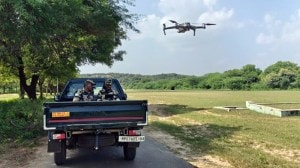Wonder cure for leprosy-hit developed
NEW DELHI, JAN 30: In a major first for Indian science, researchers at the National Institute of Immunology (NII) have developed an anti-lep...

NEW DELHI, JAN 30: In a major first for Indian science, researchers at the National Institute of Immunology (NII) have developed an anti-leprosy vaccine which promises faster relief to sufferers of the dreaded disease.
Twenty-five years of research and clinical trials lie behind the success of the breakthrough in developing the immunotherapeutic vaccine, which the NII says will be available in the market by June this year.
While conventional treatment for leprosy takes between three to five years for a complete cure, the new vaccine, to be marketed under the name `Leprovac,’ will cut down the time for a cure to between six to 12 months.
And in a rare marriage between a scientific institution and industry, NII has sold the exclusive manufacturing rights for the vaccine to the Ahmedabad-based Cadilla Labs.
The vaccine will be available at about Rs 6 per dose, with the total therapy cost for eight doses at around Rs 50 over a two-year period.
There are still a number of hurdles to be crossed, but theseappear minor compared to the difficulties that the research team have overcome. Even after the vaccine cleared the clinical trials, it took two years for the Drug Controller of India (DCI) to give its clearance to the vaccine.
According to Sandeep Basu, Director, NII, when the vaccine was administered along with conventional multi-drug therapy, it show a marked improvement in patients with lesions healing faster and a reduction in the number of infected granuloma.
Though work on the vaccine began in the early 1970s at the All India Institute of Medical Sciences, the research team moved to the NII and work was speeded up after the Department of Biotechnology stepped in in the early 1990s with a grant of nearly Rs 2 crore.
The vaccine was tested in three-phased clinical trials at the two urban leprosy centres in the Safdarjung and Ram Manohar Lohia hospitals in Delhi from 1986 onwards, said G P Talwar, a former head of the NII, who led the research team both at the AIIMS and later at NII.
“Developingthe vaccine was a very difficult effort, especially since there was no experimental model in existence,” Talwar said.
According to Rama Mukherjee, a senior scientist at NII and part of the vaccine research team, another plus is that there are no side effects. “It accelerates clinical recovery, expedites the clearance of dermal granuloma, and is effective even with patients who are slow responders or resistant to conventional drugs,” said Mukherjee.
The potential for the vaccine is enormous. There are between one to two million leprosy patients needing treatment in India alone, Health Ministry officials said. Manju Sharma, Secretary, Department of Biotechnology, said since this was a first of its kind, there were good prospects for marketing the vaccine globally.
But there can be no patenting of the vaccine at this stage since it is derived from a bacterium that occurs in nature, Basu explained. However, at a later stage the issue of obtaining a patent would be pursued.
The immuno-therapeutic natureof the new vaccine would prove a boon in cases of early detection of the disease, enabling a complete and swift cure from leprosy.
Photos





- 01
- 02
- 03
- 04
- 05

























